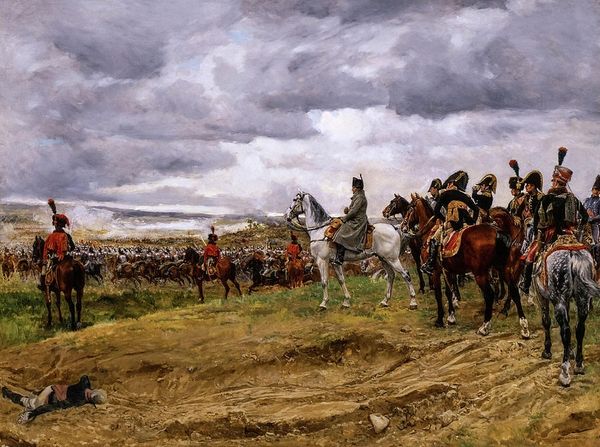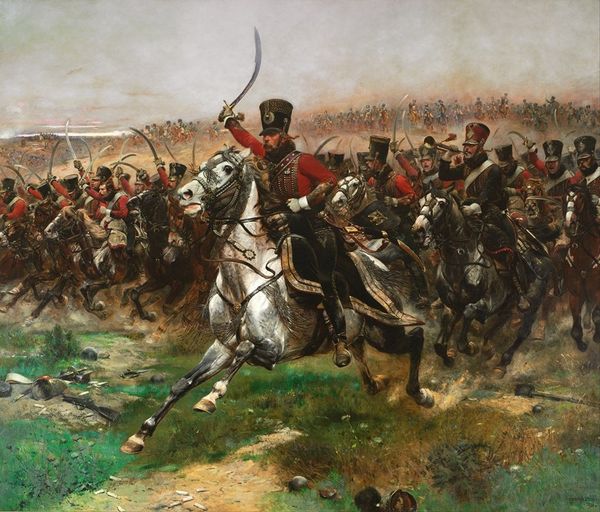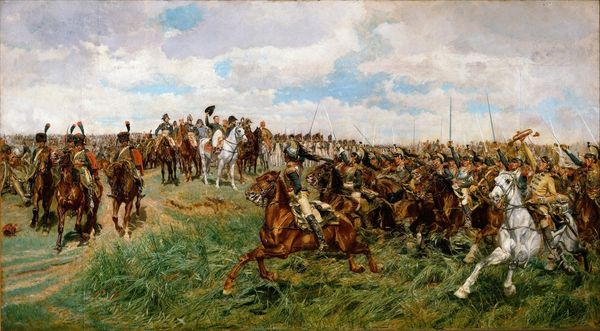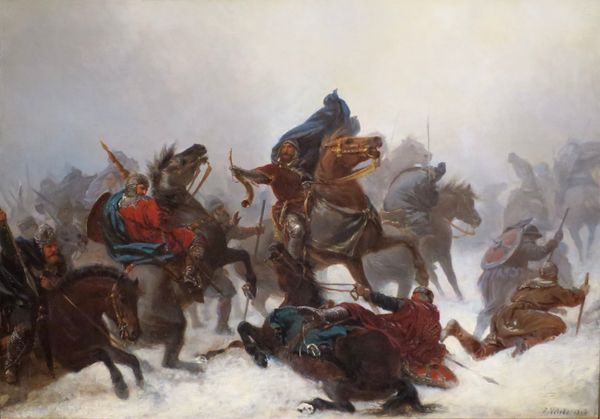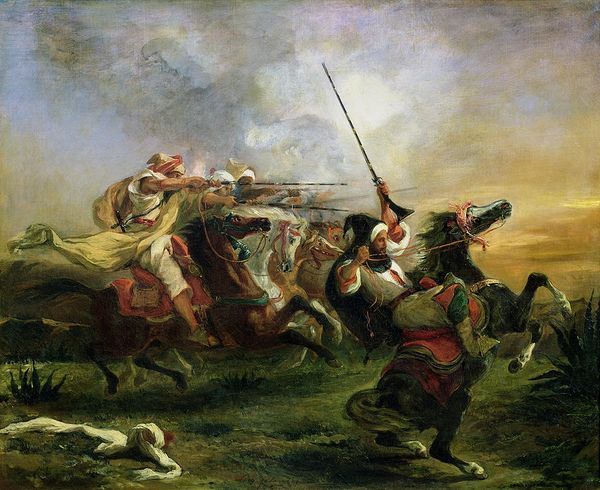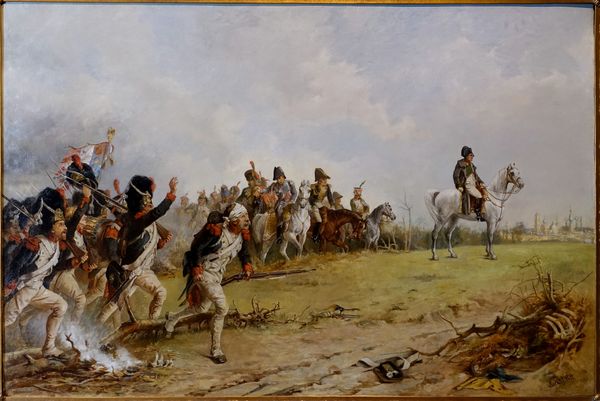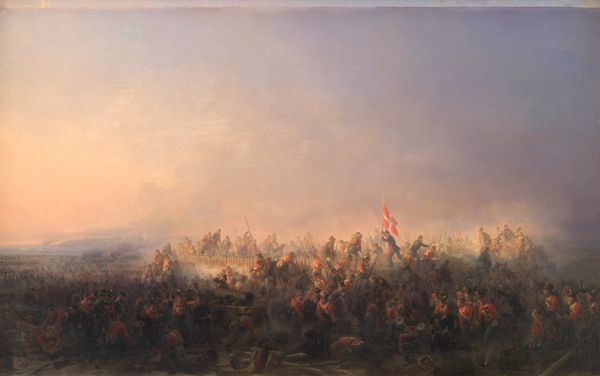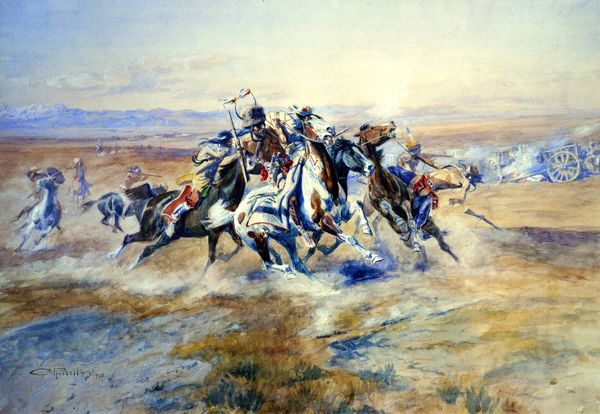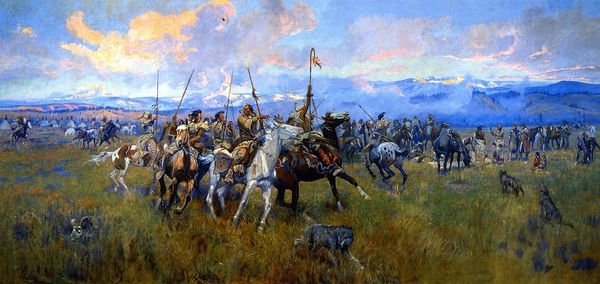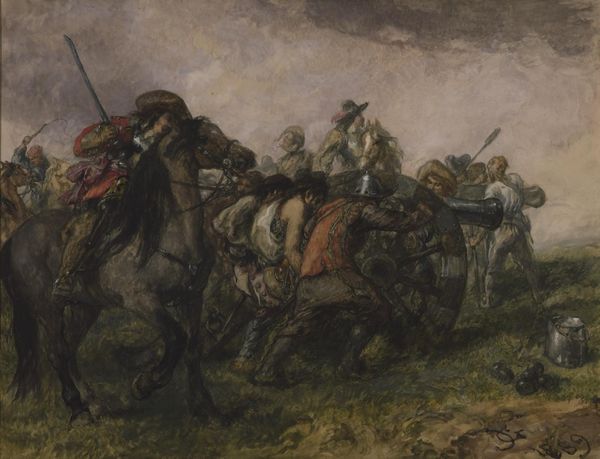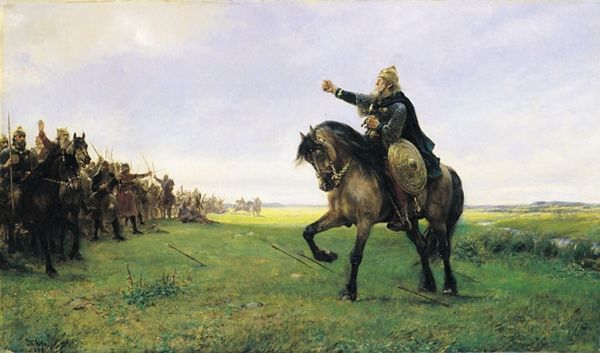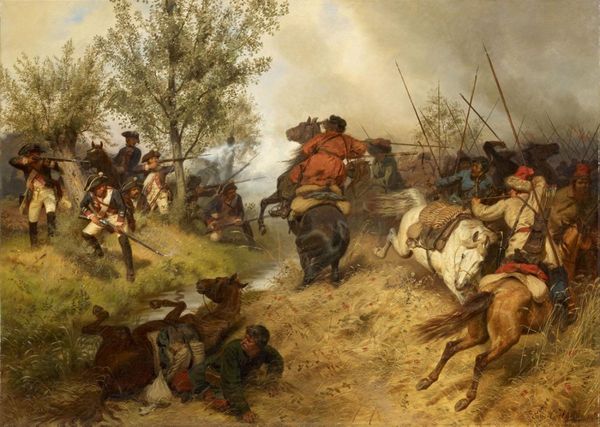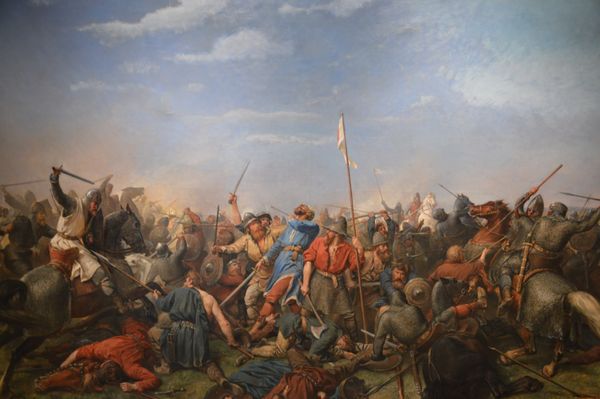
Copyright: Public domain
Curator: Looking at Elizabeth Thompson's "Floreat Etona" from 1882, one immediately sees the grand spectacle of a historical battle rendered in oil paint. Editor: Wow, just, wow. The way those horses plunge forward... you can almost hear the thunder, feel the chaotic energy, taste the gunpowder. It’s unsettling, really. Is this some kind of twisted romanticism? Curator: In a way, yes. Thompson was known for her military paintings, often highlighting the heroism of British soldiers. But her work, particularly this one, raises complex questions about the glorification of warfare. The title itself, "Floreat Etona," which translates to "May Eton Flourish," suggests a direct link to the elite public school, a traditional recruiting ground for the officer class. Editor: So, she's idealizing a moment, perhaps even a class? I mean, look at the faces – a strange mix of stoicism and terror. Are we meant to see them as symbols, more than individuals? The entire thing feels like a stage production, impeccably costumed and meticulously staged. Curator: It's important to remember that Thompson painted this during a period of intense British Imperial expansion. The imagery, heroic soldiers charging into battle, would have resonated strongly with a public eager for narratives of national triumph. This image served a clear ideological function, bolstering support for colonial endeavors by linking them to the courage and sacrifice of these individuals. Editor: It's beautifully rendered, undeniably captivating, but I can't help but feel uneasy. Knowing the historical context doesn't soften that jolt of dissonance; it makes me wonder about the role art plays in shaping those very contexts. Curator: Exactly. Thompson’s artistry serves as a reminder that artistic skill doesn’t preclude the conveyance of complex, and at times, problematic social or political messaging. Editor: It's a stunning piece, both for its technique and for what it unwittingly reveals about the machinery of power, or more accurately, how certain images are used to glorify the status quo. Thanks for helping to highlight the less-than-obvious. Curator: The pleasure was all mine. Viewing "Floreat Etona" through these intersecting lenses reminds us to think critically about whose stories are being told.
Comments
No comments
Be the first to comment and join the conversation on the ultimate creative platform.
